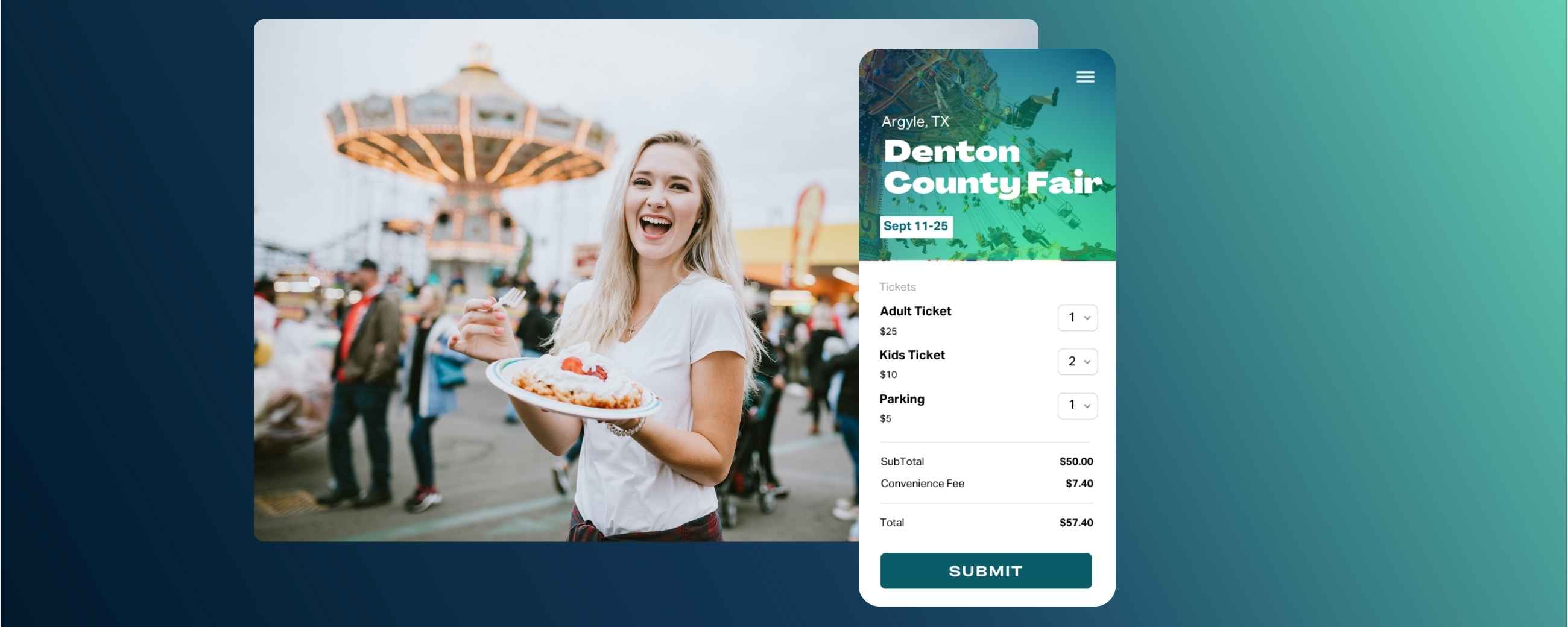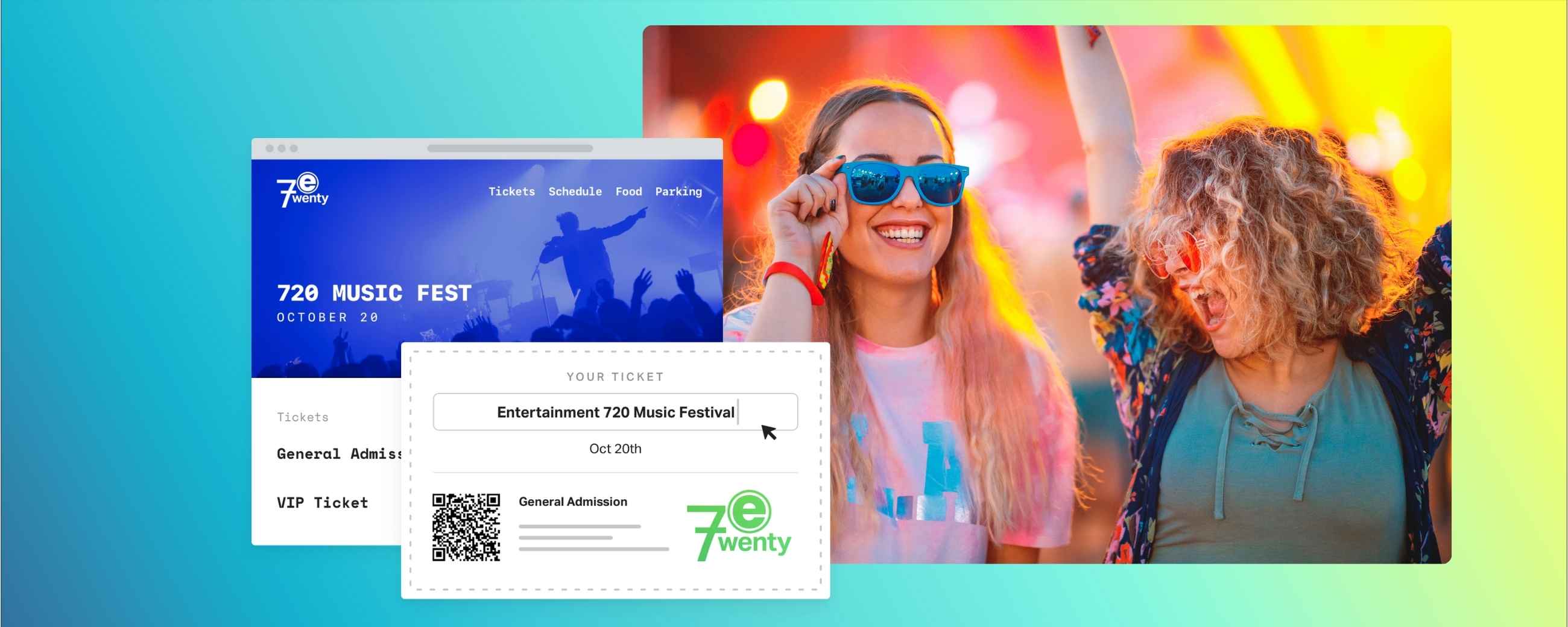Why This Decision Matters for Operators and Organizers
If you operate a zoo, aquarium, or museum, your ticketing needs will differ significantly from those of an annual concert or festival. Using the wrong system can result in higher costs, lost revenue, or a poor attendee experience.
What Daily Ticketing Actually Means
Daily ticketing is built for attractions open most days of the year. Think of zoos, museums and gardens, where guests can buy tickets any day, for any available time slot.
With daily ticketing running continuously, visitors are spread out, but surges are expected. For example, you might have 200 visitors on a Monday and 1,500 on a Saturday.
One-Time Event Ticketing
One-time event ticketing is designed for fixed dates and special events that happen once or twice a year. It’s best for concerts, festivals, fairs, and seasonal events.
Campaign cycles are often simple and focused with a sense of urgency. You open ticket sales, ramp up promotion, and close the campaign when the event ends. One-time events excel with quick high-volume sales bursts, early-bird discounts, and campaign-based reporting.
Core Differences You’ll Notice Right Away
In short, daily ticketing systems are about ongoing operations, while one-time systems are about big moments.
Daily Ticketing
⏰ Duration of Sales: Ongoing, year-round, with continuous availability
⚙️ Needed Features: Timed entry, capacity management, memberships, and recurring passes
💰 Revenue Tracking: Daily or per time slot
🧩 Best Fit: Zoos, aquariums, museums, gardens, amusement parks, and other venues that are open daily.
One-Time Events
📅 Duration of Sales: Fixed dates with a clear launch and close window
⚙️ Needed Features: Email drip campaigns, promo codes, reserved seating, limited ticket tiers
💰 Revenue Tracking: Campaign-based performance reports
🧩 Best Fit: Concerts, festivals, haunts, and other single-season or annual events
Pro tip: If you find yourself wrestling with features your system doesn’t support, you might be using the wrong model.
Signs You’ve Outgrown a One-Time System
✔️ You’re open nearly every day, but your software treats each day as a separate event.
✔️You’re manually updating ticket links every week.
✔️ Guests keep asking about memberships or season passes.
✔️ You spend hours reconciling daily revenue manually.
If any of these sound familiar, it’s time to upgrade to a daily ticketing system that can automate all of that for you.
Why Scalability Matters Even if You’re Small Now
Many attractions start small and outgrow their ticketing systems. A local garden or petting zoo, for example, grows into a regional destination. If your system becomes bogged down by the volume of your event, multiple sales channels, or new data insights, it will slow you down.
Scalability isn’t just about size; it’s also about flexibility, analytics, and automation. Some large zoos, for example, have seen a 5–10% increase after adding new experiences or exhibits. The right ticketing platform makes that growth seamless instead of stressful.
Real-World Examples of Daily vs. One-Time Models
🖼 A museum with daily ticketing uses timed entry to control capacity and distribute crowds around the most popular exhibits.
🎶 A music festival runs a one-time campaign with early-bird pricing, promo codes, and tiered VIP passes. Then, once the gates open, ticketing shuts down.
🎃 A pumpkin patch takes a hybrid approach, functioning as both a year-round attraction and a seasonal event. This might include both daily ticketing and memberships, depending on the specific time of year.
How TicketSpice Helps You Scale Either Way
Whether you sell daily tickets or host annual events, TicketSpice is designed to help your event grow. It’s one platform that powers both models
For attractions, TicketSpice offers timed entry, membership management, and upsells. For one-time events, TicketSpice powers high-volume campaigns, promo codes, and real-time analytics that take the stress out of the big launch.
FAQs Operators Always Ask About Daily vs. One-Time
What is daily ticketing?
Daily ticketing allows visitors to buy tickets for any open date or time slot, not just for one event date.
Is daily ticketing more expensive?
Not necessarily. You pay for the same ticketing power—but you save on time, labor, and lost opportunities from manual management.
Can I switch from one-time to daily ticketing?
Yes! Many TicketSpice users evolve from one-time events to daily operations. The platform can grow with you.
Do I need separate software for memberships or recurring passes?
No. TicketSpice can sell and renew memberships directly, alongside regular tickets.
How do I manage capacity with daily ticketing?
Set capacity limits per day or time slot to automatically prevent overselling.
Can I still sell group or VIP tickets?
Absolutely. You can layer on custom pricing and special options for groups or premium guests.
What if I run both one-time events and daily operations?
TicketSpice makes that easy—you can manage both within the same dashboard and reporting system.
Key Takeaways
🔑 Daily ticketing is best for attractions open year-round
🔑 One-time ticketing is the best fit for concerts, festivals, and limited-time events
🔑 Scalability matters, even if you’re small today
🔑 TicketSpice supports both models so you can scale smoothly
Ready to grow without stress? With TicketSpice, you can sell more, operate faster, and scale without switching systems.
Sign up with TicketSpice today or reach out to our team with questions.
We’re here to help you host your best event ever!
— The TicketSpice Team






















.png)
